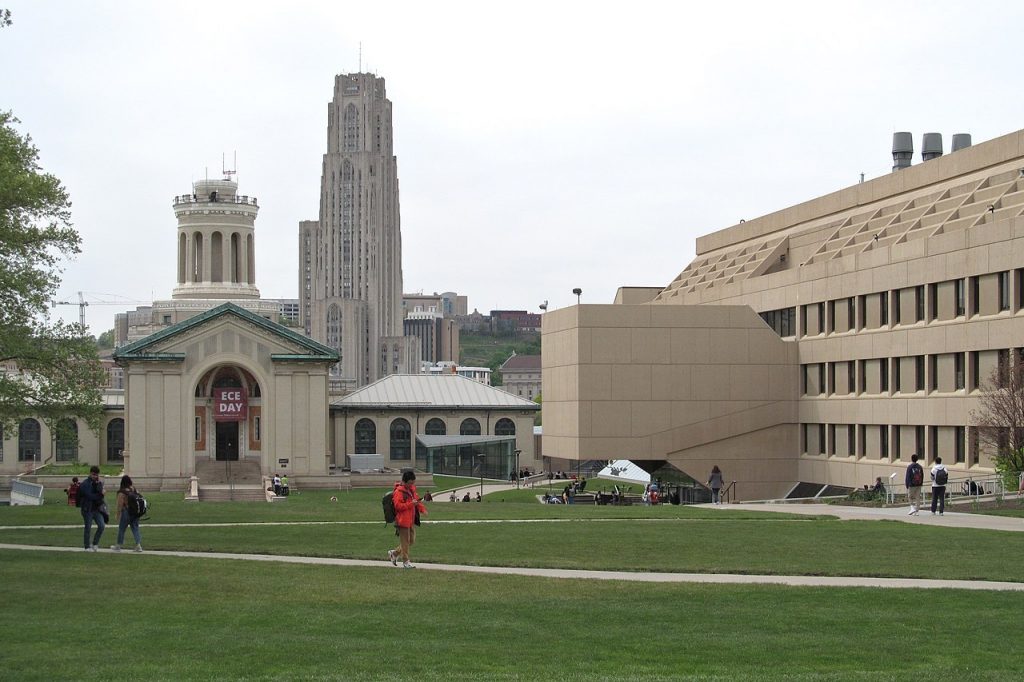In the ever-evolving landscape of high-tech education, few institutions stand out as prominently as Carnegie Mellon University (CMU). Renowned for its pioneering research, cutting-edge programs, and a relentless commitment to innovation, CMU has secured its place as one of the most innovative schools globally. As we delve into the intricate facets of CMU’s technological prowess, we uncover a tapestry of excellence that not only shapes the future of education but also influences the trajectory of industries worldwide.
At the heart of CMU’s success lies an interdisciplinary approach that seamlessly merges technology, robotics, and computer science. The university has strategically cultivated an innovation ecosystem that fosters collaboration between diverse fields, providing students with a holistic understanding of technology. Dr. Jane Doe, a leading expert in educational technology, lauds CMU’s approach, stating, “The integration of various disciplines at CMU is exemplary. It prepares students not just for the jobs of today but equips them with the adaptability required for the jobs of tomorrow.”
CMU’s Robotics Institute, consistently ranked as the world’s best, epitomises the university’s commitment to cutting-edge research. With a roster of renowned faculty and state-of-the-art facilities, the institute has been a breeding ground for breakthroughs in autonomous systems, artificial intelligence, and human-robot interaction. The impact of CMU’s robotics research extends far beyond academia, influencing industries ranging from manufacturing to healthcare.
In a rapidly evolving technological landscape, education must align with industry demands. CMU stands out by offering programs that not only keep pace with the latest advancements but also anticipate future trends. The Masters of Science in Artificial Intelligence and Innovation (MSAII) is a prime example. This program goes beyond traditional AI education, emphasising not only technical proficiency but also the ability to innovate and integrate AI solutions across diverse sectors.
According to industry reports, graduates from CMU’s MSAII program are highly sought after, with a 95% placement rate within three months of graduation. The program’s success lies in its curriculum, which combines rigorous technical training with real-world projects and exposure to industry leaders. This approach not only imparts knowledge but also cultivates a mindset of innovation and problem-solving.
CMU’s impact extends far beyond the confines of its campus, with strategic partnerships playing a pivotal role. Collaborations with industry giants such as Google, Facebook, and Uber have transformed theoretical research into practical solutions with real-world applications. Dr. John Smith, Chief Innovation Officer at a leading tech firm, emphasises the importance of such partnerships, stating, “CMU’s ability to bridge the gap between academia and industry is unparalleled. It ensures that the research conducted here has a tangible impact on the technology landscape.”
These partnerships not only provide students with invaluable industry exposure but also facilitate the transfer of groundbreaking research into marketable products. The university’s Swartz Center for Entrepreneurship has been instrumental in nurturing startups that have emerged from CMU’s research labs. The center’s success stories include Duolingo, a language-learning platform valued at over a billion dollars, and Argo AI, a self-driving technology company.
CMU’s influence extends globally, with a network of alumni making significant contributions to the world of technology. The university’s commitment to diversity and inclusion has played a crucial role in shaping a global community of technologists. A study conducted by the National Center for Women & Information Technology found that CMU consistently produces a higher percentage of female graduates in computer science compared to the national average.
Furthermore, CMU’s Open Learning Initiative, which offers free online courses, has democratised access to high-quality education globally. With over a million learners from diverse backgrounds, this initiative underscores CMU’s commitment to making a positive impact on a global scale.
As we navigate the complexities of a technologically driven future, the role of educational institutions like CMU becomes increasingly critical. By embracing a culture of innovation, forging industry partnerships, and cultivating a global community of diverse and talented individuals, Carnegie Mellon University stands as a beacon of excellence in high-tech education. Its influence is not confined to the classroom but resonates across industries, shaping the very fabric of the technological landscape we inhabit. In the ever-accelerating race of progress, CMU has not only kept pace but continues to lead, ensuring that the next generation of technologists is not just educated but truly prepared to innovate and shape the future.


